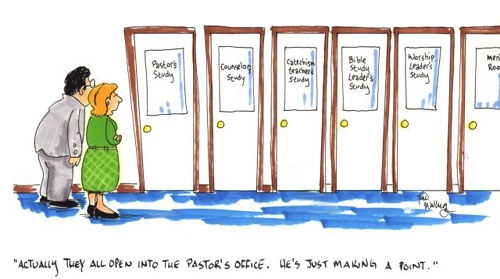 I have always enjoyed meeting visitors on Sundays. I am always fascinated by why families decide to visit churches. I often ask where they live and how they heard about the church. One common conversation I often have with visitors is about how hard it is for people to find a church that truly fits them. People often talk about how it takes months of visiting churches before they find something they want to attend.
I have always enjoyed meeting visitors on Sundays. I am always fascinated by why families decide to visit churches. I often ask where they live and how they heard about the church. One common conversation I often have with visitors is about how hard it is for people to find a church that truly fits them. People often talk about how it takes months of visiting churches before they find something they want to attend.
I heard church leadership experts talk about building your church not on who is there, but on who is not there yet. They often argue that you have all the people you have because of who you are now. If you want more people, you have to change to try to attract those who are not there yet. Knowing this, I used to spent a lot of time thinking about how to make our church a place where people would want to attend.
So I decided to spend time and effort focusing on doing things that I thought would attract and keep visitors. I started to question the format. I worried about aesthetics. I worried about what I would wear. I worried about who was on stage and what they looked like. As a Spirit-filled church I worried about what people would think if visitors were to come who didn’t understand the type of gifts we believe in. I put my focus on changing who we were in order to become a church that people would want to attend. I even found myself making changes that I personally did not enjoy, but I did them to please potential visitors. After all that effort, we didn’t have any more success in keeping visitors. The worst part is, now not only did visitors not want to attend, I didn’t want to go there either!
After exhausting myself trying build a church that some imaginary family would want to attend, I started to think about what kind of church I would want to attend. It was a question I asked our team during our vision discovery process. As our team discussed it, I realized that for the most part, the people who were already there all wanted similar things. We had similar values and were all there because we wanted to be there. We took those things and made them our core values. What a freeing decision that was. I no longer had to worry about whether a visiting family liked us or not. We knew who we were and the type of church we wanted to be.
This is one of the best parts about being a pastor. You get build a church you would want to go to. Its sounds sort of self serving, but it is actually not. As pastor, you should love your church. You should be its biggest fan. Plus, you will only be effective in doing the things you feel the most passionate about. You can change all you want, but if you don’t love what you have become, what good is it?
Instead of trying to chase the illusive goal of building a church that some imagined visitor would want to attend, why not spend your energies working to build a church culture for the people who have already said this is a church they want to attend. You can go out of your way to change for the people who aren’t there, but often when we do that, we alienate the people who are there! While its true, that some visitors may not fit what you are trying to do. But lets be honest, that is happening anyway. There are people out there looking for a church that cares about what you care about.
If you don’t love your church, start by asking yourself a simple question. If you were to leave your church today and had to search for a church to attend, what would you look for? Write those things down. Discuss them with your team. Then put your energies toward building that kind of church. When you love it, when your team loves it, when your church members love it, others will want to join you.











